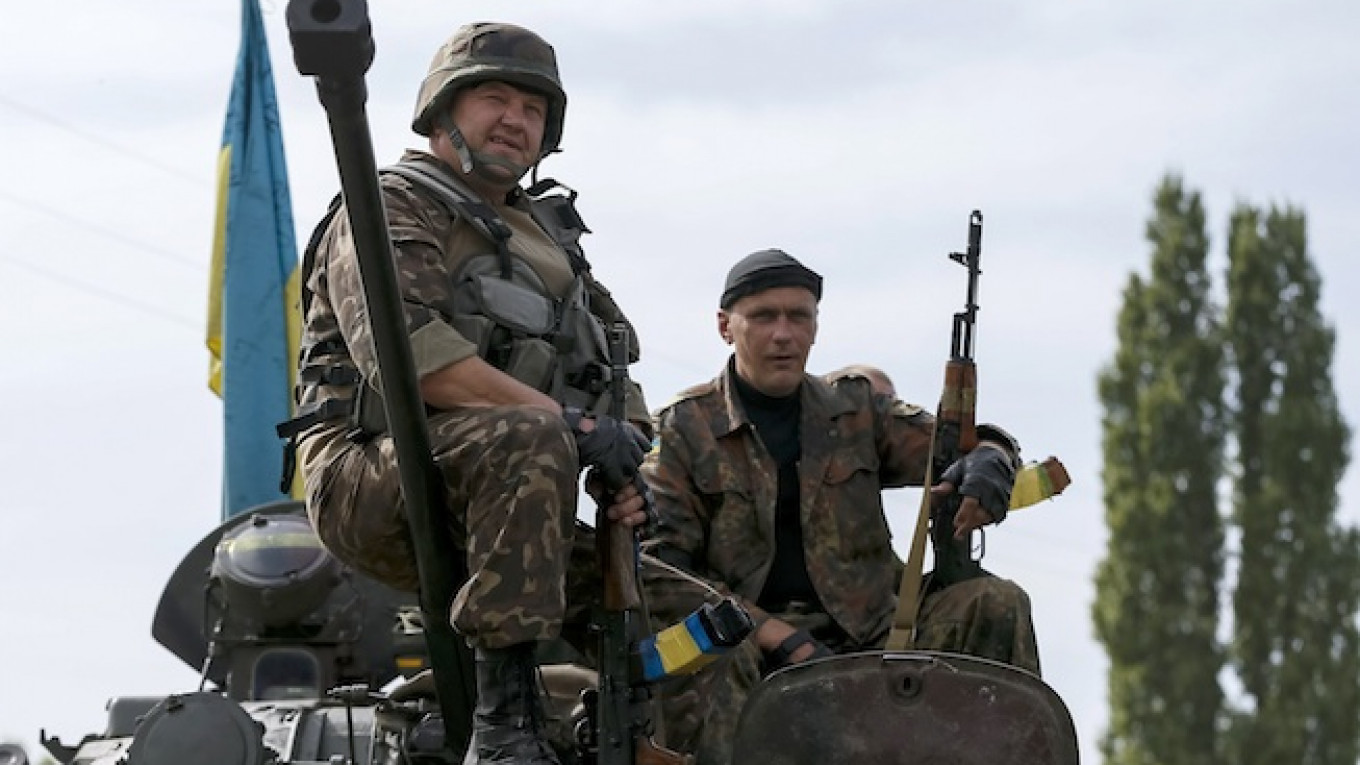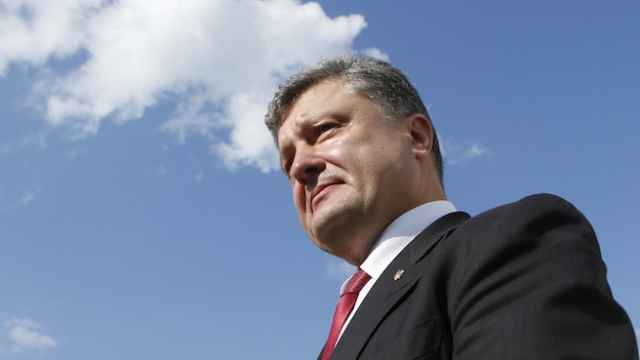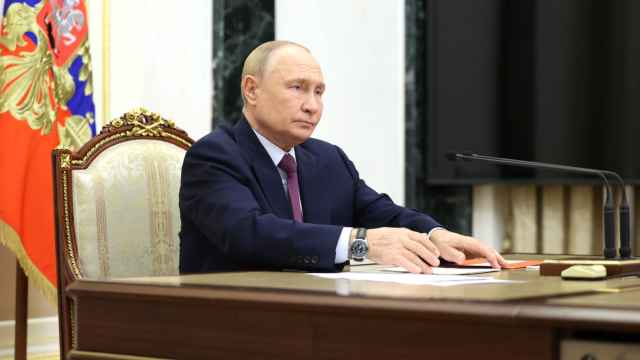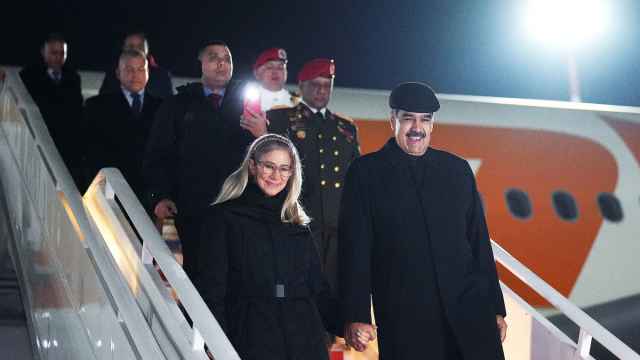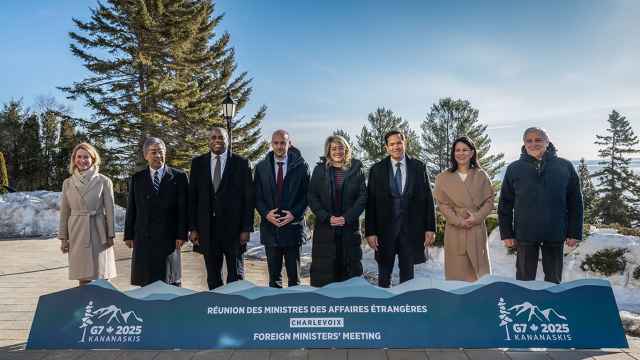KIEV — Ukraine's military has said it is pulling back artillery and heavy armor from the front line with separatists, backing Ukrainian President Petro Poroshenko's peace plan for a conflict that has cost more than 3,000 lives.
Taking a noticeably soft line on the Russian-backed separatists for the first time, military spokesman Andriy Lysenko said Monday that reduced fire from the rebels and Russian forces meant the Ukrainian army could begin withdrawing heavy weaponry from a proposed 30-km (19-mile) buffer zone.
His announcement was in line with a call by Poroshenko on Sunday night for people to back his peace plan, which he said was needed to keep support of the U.S. and other Western governments.
The president was forced to end an offensive against the separatists and call a cease-fire on Sept. 5 after big battlefield losses that Kiev ascribed to the direct intervention of Russian troops, something Moscow denied despite what Kiev and the West says is undeniable proof.
Though Ukrainian soldiers continue to die in spite of the cease-fire — two more were killed in the past 24 hours, Lysenko said — Poroshenko on Sunday defended his peace plan, saying Ukrainian deaths had been reduced ten-fold.
Speaking after returning home from a meeting with U.S. President Barack Obama in Washington, Poroshenko said he would have risked forfeiting Western goodwill by pressing ahead with a military offensive against Russian-supported separatists.
No U.S. Weapons
Despite telling the U.S. Congress that Ukraine needed more than "blankets" from the U.S to win the war against the separatists, his failure to secure a U.S. promise of weapons from Obama may have convinced him of the need to move forward more rapidly with the peace process on the ground.
"It's not possible to win … purely by military means. The more Ukrainian army battalions or brigades are brought up, the more troops there are from the Russian Federation," he acknowledged on Sunday night.
He added that his priorities now were to get all Russian troops out of the country. "We'll monitor this. We'll say when the last Russian soldier has left," he said. The border with Russia had also to be closed.
His military's announcement that it is complying with an agreement reached in the Belarussian capital Minsk last Friday for creation of a 30-km buffer zone will strengthen Ukraine at the UN general assembly on Thursday where Prime Minister Arseniy Yatseniuk will put the case for the country.
Military spokesman Lysenko, in rare favorable comments on the separatists and Russia, said artillery attacks had diminished in the past 24 hours and that there had been no firing from Russian territory.
"A lessening of intensive shelling has been noted. No violations of the border have been tracked by our border guards. There was no firing from the territory of the Russian Federation. All this shows the practical realization of all the points of the peace plan," Lysenko told journalists.
"The Ukrainian military is setting an example of how this should be done," he said.
Buffer Zone Line
Last Friday's Minsk memorandum foresees the warring sides pulling back their artillery by 15 km on each side to create a 30-km buffer zone between their forces.
These factors allowed Ukraine to start preparing large-calibre artillery and heavy equipment for withdrawal, Lysenko said.
Military officials have not identified exactly where the buffer zone line will run. Much of the recent military action has been in the city of Donetsk, the region's main industrial hub with a pre-conflict population of nearly one million.
Lysenko, replying to a question, said only: "It is the line where there are forces."
Poroshenko's deeper plan may be to calm the waters, albeit temporarily, ahead of a parliamentary election on Oct. 26 when he hopes for a strong coalition to emerge in his favor
His plan to grant limited self-rule for a three-year period to the independence-minded separatists has left him vulnerable to criticism at home that he gave in to Moscow and set the scene for creation of a "frozen conflict" within Ukraine.
The plan, which was bulldozed through parliament at a closed session, has also been met by derision by the rebels who say they do not want to be part of Ukraine.
A Message from The Moscow Times:
Dear readers,
We are facing unprecedented challenges. Russia's Prosecutor General's Office has designated The Moscow Times as an "undesirable" organization, criminalizing our work and putting our staff at risk of prosecution. This follows our earlier unjust labeling as a "foreign agent."
These actions are direct attempts to silence independent journalism in Russia. The authorities claim our work "discredits the decisions of the Russian leadership." We see things differently: we strive to provide accurate, unbiased reporting on Russia.
We, the journalists of The Moscow Times, refuse to be silenced. But to continue our work, we need your help.
Your support, no matter how small, makes a world of difference. If you can, please support us monthly starting from just $2. It's quick to set up, and every contribution makes a significant impact.
By supporting The Moscow Times, you're defending open, independent journalism in the face of repression. Thank you for standing with us.
Remind me later.


